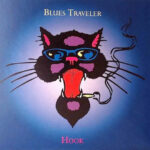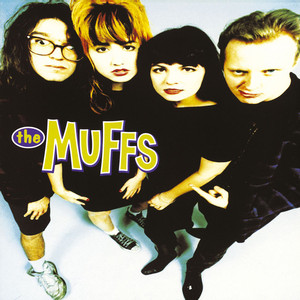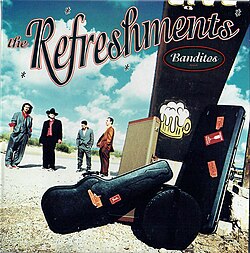 In 1994, Blues Traveler released a song that would become their defining moment, a track that cemented their place in the pantheon of 1990s alternative rock while simultaneously poking fun at the very concept of mainstream appeal. That song was “Hook”, a clever, witty, and irresistibly catchy tune from their fourth studio album, four. It was a track that did more than just chart; it defined an era, capturing the essence of radio-friendly rock while winking at the formulaic nature of commercial songwriting.
In 1994, Blues Traveler released a song that would become their defining moment, a track that cemented their place in the pantheon of 1990s alternative rock while simultaneously poking fun at the very concept of mainstream appeal. That song was “Hook”, a clever, witty, and irresistibly catchy tune from their fourth studio album, four. It was a track that did more than just chart; it defined an era, capturing the essence of radio-friendly rock while winking at the formulaic nature of commercial songwriting.
“Hook” is one of those rare songs that operates on multiple levels. On the surface, it’s a perfectly structured pop-rock anthem, with an instantly hummable melody and a hook so sticky it could lodge in your brain indefinitely. Beneath that, it’s a meta-commentary on the music industry, an ironic critique of how songs manipulate audiences, packaged in the very style it critiques. Blues Traveler, led by the lyrical wit and harmonica genius of John Popper, managed to create a song that’s both self-aware and universally appealing—a paradox that few bands manage to pull off with such finesse.
The Rise of Blues Traveler
By 1994, Blues Traveler was already a respected name in the jam band circuit, known for their improvisational live shows and the virtuosic harmonica playing of frontman John Popper. Hailing from New Jersey, the band had been honing their sound for nearly a decade, blending blues, rock, folk, and jazz into an eclectic but cohesive mix.
However, while their earlier albums garnered critical acclaim and a devoted fanbase, Blues Traveler hadn’t yet broken into the mainstream. That changed with Hook. The song was their bridge from college-radio favorites to household names, earning them heavy rotation on MTV, radio stations, and music television programs. Its success demonstrated that the band could craft tightly written, radio-friendly songs without losing the improvisational spirit that made them unique.
A Song About Songs
At its core, “Hook” is a song about songwriting itself, particularly the mechanisms that make a song catchy. Popper openly admits that the lyrics are intentionally manipulative, designed to show how hooks and repetitive melodies can make listeners fall in love with a song regardless of lyrical content. The genius lies in the irony: the very song that critiques formulaic music is written using the exact techniques it lampoons.
Popper’s lyrics are a satirical play on the tropes of pop music:
“It doesn’t matter what I say
So long as I sing with inflection.”
This line sets the tone for the entire song, underscoring that style and delivery often outweigh meaning in popular music. By drawing attention to the mechanics of songwriting while executing them flawlessly, Blues Traveler creates a layered listening experience. The song operates on two planes: the casual listener can enjoy the infectious melody, while those paying attention can appreciate the commentary on musical manipulation.
The chorus itself is a masterclass in catchiness, a simple, repeating melody that stays lodged in the mind long after the song ends. “Hook” demonstrates that pop sensibilities and intelligent songwriting are not mutually exclusive—they can coexist, and when done well, they elevate each other.
The Music That Hooks You
Musically, “Hook” is quintessential mid-1990s alternative rock with a twist of blues-jazz influence. The arrangement is deceptively simple: driving guitar riffs, tight rhythm section, and Popper’s harmonica weaving through the mix like a playful narrative voice.
The song opens with a punchy guitar line that immediately establishes the groove, drawing listeners in with a sense of urgency. Bassist Bobby Sheehan and drummer Brendan Hill lock in a tight, propulsive rhythm, providing the foundation for Popper’s lyrical antics. The harmonica—Popper’s signature instrument—is the song’s secret weapon, adding both melodic interest and an edge that separates it from the typical pop-rock radio fare of the era.
What’s particularly impressive is how Blues Traveler balances complexity and accessibility. On paper, “Hook” could be an academic exercise in musical theory, with its intricate harmonica runs and well-placed chord progressions. Yet it feels effortless, spontaneous, and wildly fun. The result is a song that satisfies both casual listeners and music aficionados, a rare feat in popular music.
Lyrics That Play With the Listener
Lyrically, “Hook” is as clever as it is self-aware. Popper’s writing satirizes the formulaic elements of pop and rock, all while demonstrating their effectiveness. Lines like:
“The chord I’m using isn’t new
No, it’s been here from the start
But if you look back, you’ll find that it’s true
That melody will move your heart”
These lyrics serve as both an admission and a joke—the song literally moves your heart because it is crafted to do so. There’s an intellectual humor to it, a wink to listeners who are paying attention, that elevates the track beyond a simple hit.
Additionally, the bridge of the song cleverly highlights repetition and predictability in music:
“It doesn’t matter what I say
As long as I sing with inflection
That makes you feel that I can play
And I can rock you with my direction”
It’s playful, self-referential, and yet profoundly accurate. The song reveals the invisible strings behind mainstream success, showing that pop hooks are often less about meaning and more about emotional manipulation—and then it does it so expertly that listeners willingly succumb.
The Video That Cemented the Hit
The music video for “Hook” further amplified its impact, combining humor, performance, and a subtle nod to the song’s ironic message. Popper’s animated-like charisma, the band’s playful performance, and visual storytelling helped the track resonate with a wider audience. MTV and other music television channels embraced it immediately, furthering Blues Traveler’s transition from cult favorites to mainstream stars.
The video is quintessential 1990s alternative rock: quirky, energetic, and not taking itself too seriously. It mirrors the song’s tone perfectly, highlighting the band’s sense of humor while showcasing their musical chops. The visuals, much like the lyrics, are clever enough to reward repeated viewing, adding another layer of engagement for fans.
Cultural Impact and Reception
Upon release, “Hook” quickly climbed the Billboard Hot 100, peaking at No. 23, while the album four achieved triple-platinum status. Its popularity wasn’t just commercial—it was generational. Fans who discovered the song in the mid-1990s remember it as an anthem of irony, intellect, and fun. It bridged the gap between jam-band sensibilities and mainstream rock appeal, influencing a generation of musicians who sought to combine technical skill with pop accessibility.
The track’s cultural resonance extends beyond charts. “Hook” has been covered, sampled, and referenced in countless media, from sitcoms to late-night shows, demonstrating its enduring appeal. It remains a staple on 1990s playlists and classic alternative rock stations, a testament to both its catchiness and clever songwriting.
Critically, the song was praised for its wit and originality. Reviewers highlighted Popper’s lyrical intelligence, the band’s tight musicianship, and the song’s playful critique of the music industry. Unlike many hits of the era that were quickly forgotten, “Hook” cemented itself as both a product of its time and a timeless commentary on popular music itself.
The Live Experience
Part of what makes “Hook” so enduring is its life on stage. Blues Traveler’s live performances elevate the song through extended harmonica solos, improvisation, and crowd interaction. At concerts, “Hook” becomes a participatory experience, with audiences chanting along, echoing the song’s playful energy.
In live settings, the band often stretches the song into jam sections, showcasing the musicianship that drew fans to them in the first place. This dual identity—radio-friendly hit and live jam vehicle—makes “Hook” unique in the landscape of 1990s rock. Few songs manage to satisfy both casual listeners and hardcore music fans, but Blues Traveler accomplished this with remarkable ease.
A Meta-Masterpiece
What separates “Hook” from other hits is its meta-nature. The song operates as both a critique and an exemplar of popular music. It’s a self-aware composition that succeeds precisely because it adheres to the very conventions it mocks. That duality is what gives it lasting power.
Listeners can enjoy it at face value as a catchy, feel-good rock song, or they can dive deeper into its commentary on melody, repetition, and commercial appeal. Few hits offer that kind of intellectual engagement without compromising on fun, making “Hook” a standout track in Blues Traveler’s catalog and in 1990s rock history.
The genius lies in the balance: it’s witty but not alienating, complex but immediately accessible, ironic but deeply sincere in its musicality. That combination ensures that “Hook” is not just remembered—it’s celebrated.
The Legacy of “Hook”
Nearly three decades after its release, “Hook” remains an essential 1990s track. It embodies an era when alternative rock could be playful, introspective, and commercially viable all at once. It’s a song that rewards repeated listening, both for its musical craftsmanship and its lyrical cleverness.
Blues Traveler went on to continue touring, recording, and influencing generations of musicians, but “Hook” remains their signature song, a benchmark for both their skill and their humor. Its influence is visible in artists who embrace irony, wit, and genre fusion, proving that the principles behind “Hook” remain relevant in today’s musical landscape.
Whether it’s on a nostalgic playlist, a classic-rock radio rotation, or a live stage performance, “Hook” still resonates. Its combination of catchy melody, harmonica prowess, and clever commentary ensures that it remains a definitive track not just for Blues Traveler but for the 1990s as a whole.
Final Thoughts
“Hook” is more than a hit—it’s a masterclass in songwriting, humor, and musical intelligence. Blues Traveler took the conventions of radio-friendly rock and turned them into a playful, self-aware anthem that remains infectious nearly thirty years later. Its genius lies in its simplicity and its irony: a song that critiques the very system it thrives in, yet does so so well that listeners can’t help but sing along.
In 1994, Blues Traveler showed the world that hooks matter, not because they’re manipulative, but because when crafted with intelligence, humor, and skill, they create art that sticks. “Hook” isn’t just a song about music—it is music at its most entertaining, clever, and enduring.
It’s catchy, it’s clever, it’s self-aware. And it’s still impossible not to hum along.


